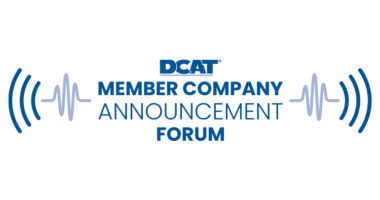Assessing Options in the OTC Market
Pfizer announced earlier this month that it is considering strategic alternatives to its consumer healthcare business. So what options may be ahead?
The over-the-counter (OTC) drug market has seen several high-profile moves over the past several years, including the formation of a consumer healthcare joint venture between GlaxoSmithKline and Novartis and Bayer’s acquisition of Merck & Co.’s consumer healthcare business. DCAT Value Chain Insights examines the OTC market and its leading players.
Inside the move
Pfizer announced earlier this month in October 2017 that it is reviewing strategic alternatives for its consumer healthcare business, including a full or partial separation of the business from Pfizer through a spin-off, sale, or other transaction. Pfizer’s consumer healthcare business had 2016 revenues of approximately $3.4 billion.
The business includes two top-selling consumer healthcare brands (Centrum and Advil) and has 10 brands that each exceeded $100 million in 2016 sales, according to Pfizer. Pfizer’s consumer healthcare business develops, manufactures, and markets non-prescription medicines, vitamins, and personal care products. Major categories and product lines include: dietary supplements (Centrum, Caltrate, and Emergen-C); pain management: (Advil and Thermacare); gastrointestinal: (Nexium 24 Hour and Preparation H); respiratory: (Robitussin and Advil Cold and Sinus); personal care: (ChapStick and Anbesol).
Pfizer expects that any decision regarding strategic alternatives for the consumer healthcare business would be made during 2018. The company said it does not plan to make any further statements about the strategic review process until a decision has been reached or upon the completion of the strategic review.
Pfizer had sold its consumer healthcare business to Johnson & Johnson in 2006 for $16.6 billion but later acquired a consumer healthcare business through its $68-billion acquisition of Wyeth in 2009. Its current OTC business resides in the company’s Innovative Health segment, which focuses on developing and commercializing novel medicines and vaccines and consumer healthcare. Its Essential Health segment includes legacy brands that have lost or will soon lose market exclusivity in both developed and emerging markets, branded generics, generic sterile injectable products, biosimilars, select branded products including anti-infectives. Pfizer had considered at one time breaking the company into two separate businesses along these segments but in September 2016 announced that it was not pursuing that approach.
Other activity in the OTC market
Pfizer’s consumer healthcare business is among the top 10 in the US OTC market, which includes other leading companies: Johnson & Johnson, Bayer Group, Procter & Gamble, GlaxoSmithKline, Novartis, Reckitt Benckiser, and Sanofi. The OTC market is highly competitive and includes not only the consumer healthcare businesses of the pharmaceutical majors but also private labels and non-pharmaceutical companies. The market grows at a moderate pace, and consolidation is used to achieve desired critical mass. In 2016, OTC medicines retail sales were $34 billion, as provided by The Nielsen Company and reported by the Consumer Products Health Association, an industry trade organization.
As Pfizer seeks alternatives for its OTC business, it will be competing for other potential transactions. In September 2017, Merck KGaA said it is considering strategic alternatives for its consumer healthcare business, which has sales of $1 billion a year, according to analyst estimates, to help fund more resources into its prescription-drug business. Merck KGaA’s consumer healthcare business provides OTC products, including remedies for relieving muscle, joint and back pain, colds and headaches as well as products for supporting physical activity and mobility. It also includes probiotic food supplements, vitamin C, and products with vitamins, minerals, and nutrients that support women’s and children’s health. The company said that its biopharmaceutical/pharmaceutical business is the leading focus for its healthcare segment and that it anticipated funding constraints in investing in its consumer healthcare business to meet critical mass.
The OTC market has seen recent consolidation, most notably the business swap between Sanofi and Boehringer Ingelheim (BI) of Sanofi’s animal health business and BI’s consumer healthcare business in 2017, the formation of a consumer healthcare joint venture between GlaxoSmithKline (GSK) and Novartis in 2015, and Bayer’s $14.2-billion acquisition of Merck & Co’s consumer healthcare business in 2014. Earlier this year in June 2017, Reckitt Benckiser Group completed its $16.6-billion acquisition of Mead Johnson Nutrition Co., a move that positioned Reckitt in the baby-formula market as part of its consumer products portfolio.
In January 2017, Sanofi and BI closed on their previously announced multi-billion dollar business-swap transaction that consisted of an exchange of Sanofi’s animal health business (Merial) and BI’s consumer healthcare business. The companies had first announced their intent for the transaction in December 2015. Sanofi integrated BI’s consumer healthcare business in all countries except China. Joint sales (excluding Venezuela) would amount to approximately EUR 4.9 billion ($5.1 billion) based upon 2015 global sales. Sanofi’s position in several product categories was strengthened with the completion of the transaction, including in the areas of pain care, allergy solutions, cough and cold care, feminine care, digestive health, and vitamins, minerals, and supplements.
The formation of the GSK and Novartis consumer healthcare joint venture was part of a three-part deal between the companies in 2015, a major move by GSK. Under that deal, GSK and Novartis created a consumer healthcare joint venture that combined the two companies’ consumer healthcare divisions, Novartis acquired certain oncology products and pipeline compounds from GSK, and GSK acquired Novartis’ non-influenza vaccines business. That deal at the time signified a strategic emphasis for GSK by focusing on higher-volume, lower-margin businesses of consumer healthcare and vaccines and selectively positioning itself in higher-margin, higher-risk pharmaceuticals only for certain therapeutic areas. In the new consumer healthcare joint venture formed under that deal, GSK Consumer Healthcare, Novartis holds a 36.5% share and GSK the balance. The new joint venture has leading positions in four key OTC categories: wellness, oral health, nutrition, and skin health. The joint venture has scale and commercial presence in the developed world as well as in key emerging markets. Emma Walmsley, who became CEO of GSK in April 2017, is the former head of the GSK-Novartis joint venture and prior to that, was president of GlaxoSmithKline Consumer Healthcare.
Bayer, which has a leading OTC product in Bayer aspirin, acquired Merck & Co.’s consumer healthcare business in 2014 for $14.2 billion. With the acquisition, Bayer gained a portfolio of products in the cold, allergy, sinus and flu, dermatology (including sun care), foot health, and gastrointestinal categories. The most important brands were Claritin (allergy), Coppertone (sun care), Dr. Scholl’s (foot health), MiraLAX (gastrointestinal), and Afrin (cold).





